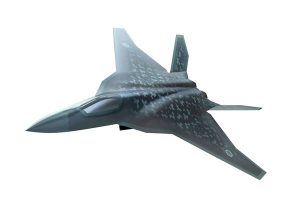On March 15, Japan’s ruling Liberal Democratic Party (LDP) and its junior partner, Komeito, agreed to relax the country’s strict defense export rules, paving the way for Tokyo to allow the international sale of the next-generation fighter jets being co-developed with the United Kingdom and Italy.
In the current Japanese Diet, the LDP-led coalition government holds a majority of seats in both the House of Representatives and the House of Councilors, thus making their agreement legally binding nationally.
The latest move marks yet another major shift in the nation’s post-war policy of maintaining an exclusively defense-oriented policy, following the lifting of restrictions on collective self-defense in 2015 and its historic decision to acquire “counterstrike capabilities” in 2022 to strike back against enemy missile bases in the event of an armed attack on Japan.
In a sense, 79 years since its defeat in World War II, Japan is in the process of returning to the status of “a normal nation” when it comes to defense and security.
The latest agreement came after many months of protracted zigzag negotiations, in which the traditionally pacifist Komeito had sought to put a brake on allowing exports of any lethal weaponry.
In July 2023, Komeito had agreed with the LDP in principle to allow the export of internationally jointly developed defense equipment from Japan to third countries, with the next-generation fighter jets in mind. Existing rules would allow Japan to send the fighter only to the other countries involved in producing it: Britain and Italy.
However, Ikeda Daisaku, honorary president of lay Buddhist group Soka Gakkai, who founded Komeito under the banner of a peace-oriented political party in 1964, passed away in November 2023. His death inspired Komeito to return to its roots as a party of peace, complicating negotiations with the LDP.
Prime Minister Kishida Fumio said in parliamentary sessions this month that the relaxation of export rules are required for three reasons. First, it would reduce production costs for the Global Combat Air Program (GCAP), the Japan-Italy-U.K. joint project to develop a next-generation fighter by 2035. Second, Kishida said, allowing defense exports would support Japan’s national security, and third, it would ensure that Japan is recognized as a reliable partner in international defense joint development programs.
There is another motivation, although Kishida has never said this publicly: The next fighter jet is a rare example of a large-scale Japanese defense project being undertaken in cooperation with countries other than the United States. This aims to change Japan’s excessive dependence on the United States for defense equipment procurement and foster its own defense industry. This would be especially crucial on the chance that former President Donald Trump, who advocates “America First,” could win a second term in November.
Defense Minister Kihara Minoru has also cited the benefits of joint development of fighters: sharing technology, reducing development costs and risk of failure, and lowering unit prices by increasing production volume.
The Kishida administration initially sought to ease the country’s strict defense equipment transfer rules not only for the next generation of fighter jets, but for all defense equipment jointly developed internationally. But that idea has been killed due to Komeito’s strong opposition.
When British Defense Minister Grant Shapps visited Tokyo in December 2023, he pointed out that “for GCAP to be successful, it will be necessary to change the Three Principles of Defense Equipment Transfer.”
A British company also cautioned Komeito members by saying that “the international reputation of the next fighter jet project will be damaged” if Japan were to block exports to third countries.
Giving political consideration to Komeito, Kishida pledged at a parliamentary session on March 13 that Japan will only allow the export of next-generation fighter jets under “strict conditions” and that the destination of fighter jet exports will be limited to countries that have signed a deal with Japan on defense equipment and technology transfers. Currently, 15 nations have such an agreement with Tokyo: Australia, India, Indonesia, Italy, France, Germany, Malaysia, the Philippines, Singapore, Sweden, Thailand, the United Arab Emirates, the United Kingdom, the United States, and Vietnam.
Kishida also said each individual export case would require a separate Cabinet approval. Up until now, the government has made decisions regarding the export of individual weapons at meetings of the four ministers of the National Security Council (NSC) without any Cabinet approval.
Kishida’s Cabinet plans to revise the implementation guidelines of the “three principles on transfer of defense equipment and technology” policy on March 26 to enable the fighter jet exports.

































